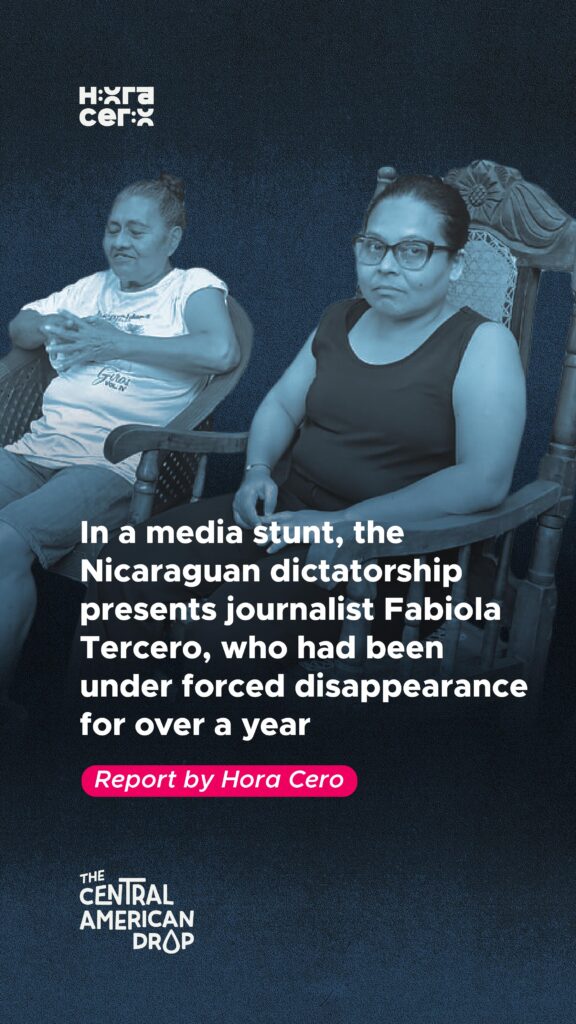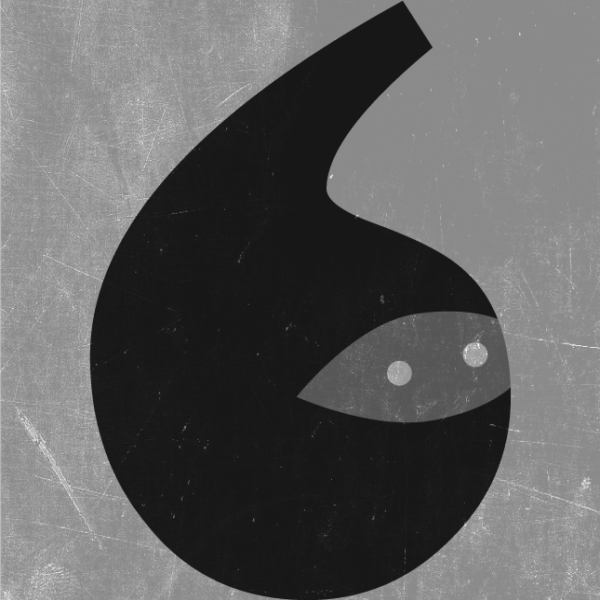
On November 11, the official media of the Daniel Ortega regime organized a press conference to present Fabiola Tercero, a cultural journalist who had been under a state of “forced disappearance” since July 2024, when the police raided her home.
After her home was raided, Tercero, who was very active on social media, stopped posting. Her cultural project, «El Rincón de Fabi,» where she organized book exchanges, ceased operations, and no one knew her whereabouts.
After more than a year of complaints and international pressure demanding information about Fabiola Tercero, the regime decided to present her and make the public believe that her disappearance was fake.
Presenting political prisoners publicly to silence international criticism has been a strategy of the regime since the crisis in Nicaragua began in 2018.
In December 2023, Monsignor Rolando Álvarez was presented to the public after his arrest eight months earlier. In the images, the Monsignor is seen outside his cell, visibly thinner. He was sentenced to 26 years in prison for treason, but in January 2024, he was expelled from the country along with other priests.
In early November, five political prisoners over the age of 60 were released. Two of them are former military officers, Ronald Leiva Silva and Jorge Portocarrero Argüello, who had been reported missing because there was no information indicating they had been imprisoned or brought to trial.
According to Confidencial, the released prisoners and their families were threatened by prison system authorities to prevent them from giving statements to the media or human rights organizations.
As of October 29, 2025, the Mechanism for the Recognition of Political Prisoners identified 77 imprisoned people, most of them in a condition of enforced disappearance.
In recent years, the Nicaraguan dictatorship has used enforced disappearance as a way to conceal the number of political prisoners. Families struggle for months to gain access to information about the victims.

| Cookie | Duración | Descripción |
|---|---|---|
| cookielawinfo-checkbox-analytics | 11 months | This cookie is set by GDPR Cookie Consent plugin. The cookie is used to store the user consent for the cookies in the category "Analytics". |
| cookielawinfo-checkbox-functional | 11 months | The cookie is set by GDPR cookie consent to record the user consent for the cookies in the category "Functional". |
| cookielawinfo-checkbox-necessary | 11 months | This cookie is set by GDPR Cookie Consent plugin. The cookies is used to store the user consent for the cookies in the category "Necessary". |
| cookielawinfo-checkbox-others | 11 months | This cookie is set by GDPR Cookie Consent plugin. The cookie is used to store the user consent for the cookies in the category "Other. |
| cookielawinfo-checkbox-performance | 11 months | This cookie is set by GDPR Cookie Consent plugin. The cookie is used to store the user consent for the cookies in the category "Performance". |
| viewed_cookie_policy | 11 months | The cookie is set by the GDPR Cookie Consent plugin and is used to store whether or not user has consented to the use of cookies. It does not store any personal data. |